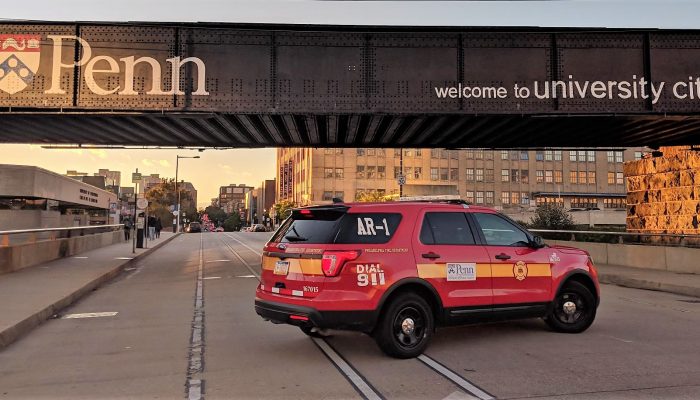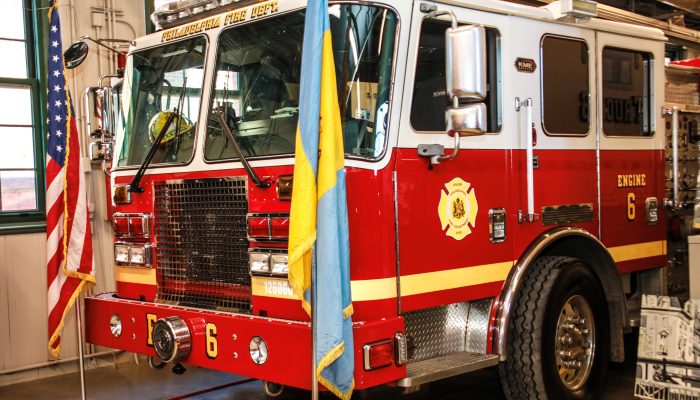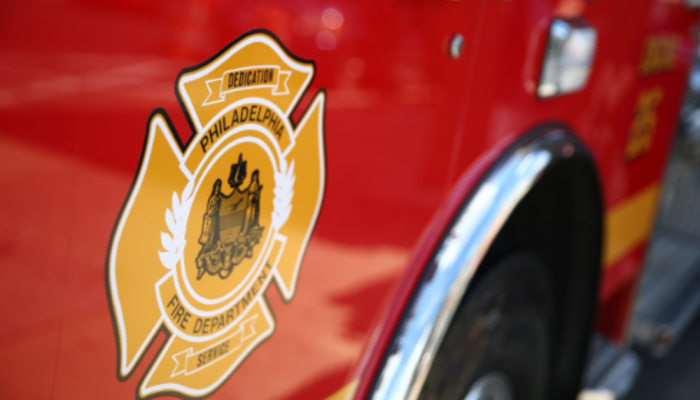The Philadelphia Fire Department has partnered with the University of Pennsylvania on an innovative public-private program designed to encourage Penn students to call for emergency medical help by removing disciplinary and financial barriers to access care.
Students with non-traumatic injuries — from sprained ankles to intoxication and other medical conditions — will receive high-quality care and hospital transportation in the PFD’s alternative response unit instead of an ambulance. The alternative unit is a marked SUV staffed by a paramedic lieutenant and an emergency medical technician.
Penn has agreed to cover the costs associated with the medical calls in the pilot program, therefore ensuring that students will not be charged for their treatment and transport.
“Penn has long had an amnesty policy to encourage students to seek medical treatment for themselves or their peers for intoxication, without fear of disciplinary action,” said Maureen Rush, VP for the university’s Division of Public Safety. “By eliminating the cost of the ambulance ride, Penn eliminates another obstacle to medical care, which may save a student’s life.”
Using the vehicle designated AR-1 to handle these types of calls also frees up ambulances to respond to more serious cases throughout the city. The PFD has 55 medic units that respond to about 800 EMS incidents every day in Philadelphia.
“The purpose of this partnership is to address low-acuity medical incidents of all types on the Penn campus,” said Fire Commissioner Adam K. Thiel. “So if a student rolls their ankle in an Ultimate Frisbee game, the ARU will respond, if available, to care for and transport that student so PFD can release an ambulance for other calls.”
AR-1 operates Thursdays through Saturdays from 5 p.m. to 3 a.m. within the boundaries of the Penn Patrol zone: between 30th Street and 43rd Street, and between Market Street and Baltimore Avenue. AR-1 is also available on Wednesdays for educational programming and response.
The AR-1 team will work collaboratively with Penn’s student-run Medical Emergency Response Team (MERT) and Penn Police officers.




